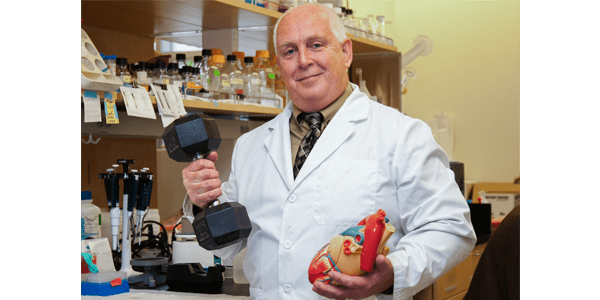UW Medicine’s The Huddle recently profiled BioE’s Michael Regnier and his journey from competitive weightlifting to biomedical research. Dr. Regnier, the Washington Research Foundation Endowed Professor in Bioengineering and adjunct faculty in physiology and biophysics at UW, once had his sights set on the ’88 Olympics — but decided instead to focus on researching diseases of the muscles, and developing therapies that improve human health.
Dr. Regnier started his weightlifting journey as a freshman at Portland State University. A former high school wrestler and football player, he found himself needing to complete 5 PE credits. At the gym, he began lifting — and got hooked. He started lifting competitively in addition to completing his history/political science major.
His academic interests turned towards science, and he went on to complete a master’s degree in exercise physiology at Portland State and a Ph.D. at the University of Southern California. All the while, he continued lifting, competing in four collegiate tournaments and several American championships. He became a California state champion and tied for bronze at the national level. The summer before the ’84 Olympics, he trained with the US weightlifting team and contemplated his own Olympic debut. But when faced with the choice of continuing down that path or becoming a scientist, he chose the latter. “I did a few more meets and then put it on my shelf of memories,” he explains. “I wanted to focus on my new fascination: what made those muscles do what they do?”
Today, Dr. Regnier studies skeletal and heart muscles with a multi-disciplinary team of researchers. Their work ranges from developing gene therapies to engineering protein- and cell-based therapy to treat cardiovascular disease. He still does some weightlighting, but you’re more apt to find him on a stationary bike or playing racquet ball when he’s not working to unlock the mysteries of how our muscles work.


